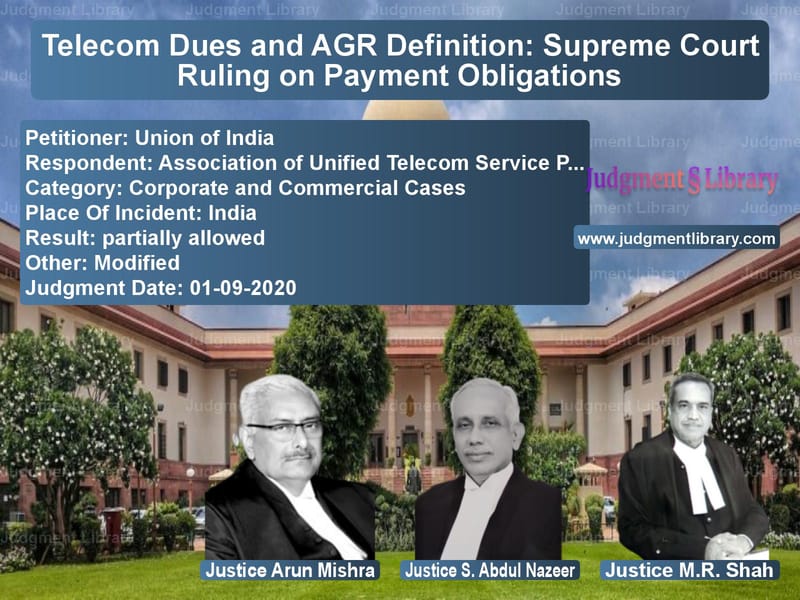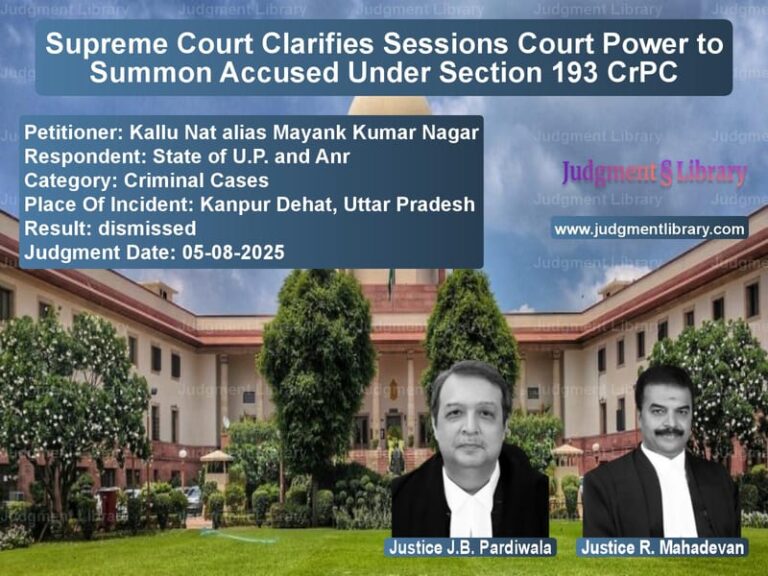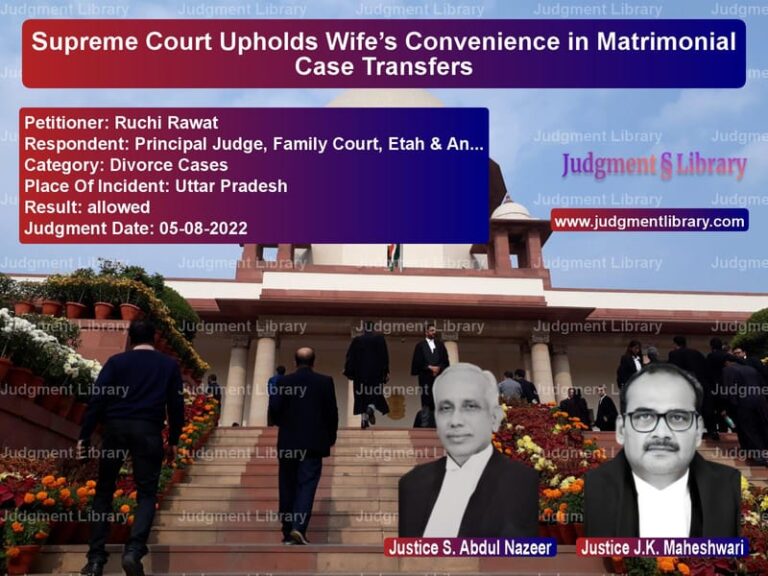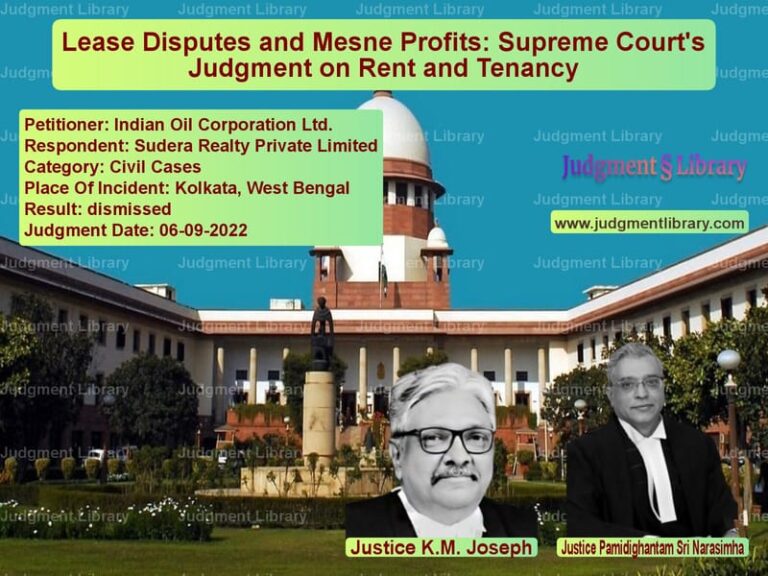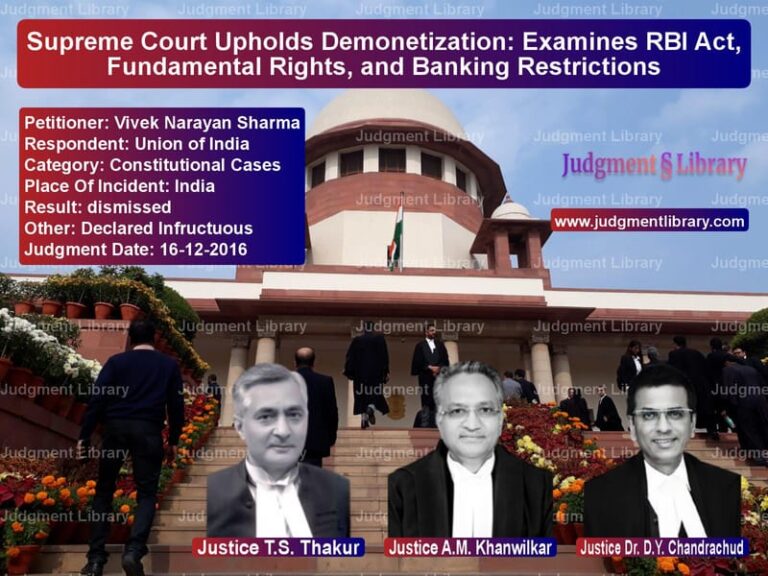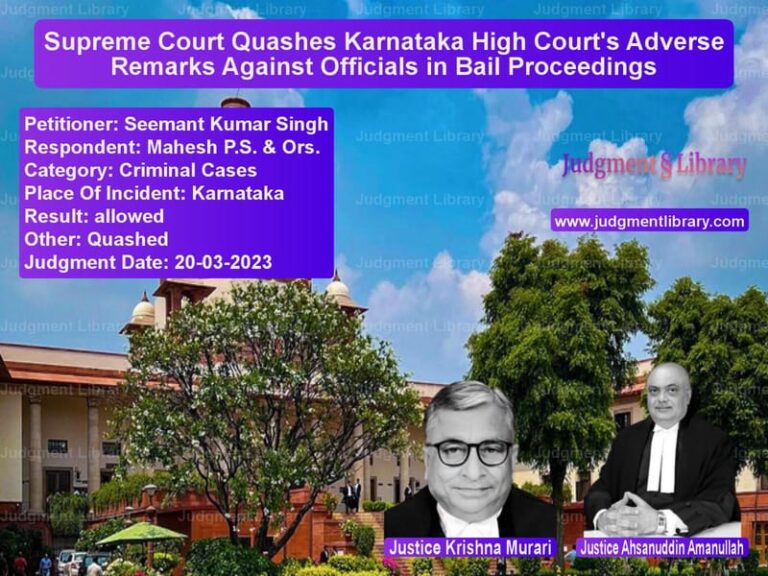Telecom Dues and AGR Definition: Supreme Court Ruling on Payment Obligations
The Supreme Court of India, in the case of Union of India vs. Association of Unified Telecom Service Providers of India, delivered a crucial judgment on the issue of Adjusted Gross Revenue (AGR) dues owed by telecom service providers. The case centered on the long-standing dispute between telecom operators and the Department of Telecommunications (DoT) over the interpretation of AGR, which forms the basis for calculating revenue share dues owed to the government.
The Court’s ruling reaffirmed the liabilities of telecom operators and set a definitive payment schedule, ensuring compliance with past judgments while considering the financial impact on the telecom sector.
Background of the Case
The dispute over AGR dates back to the introduction of the revenue-sharing regime in 1999 when telecom operators entered into licensing agreements with the government. Under these agreements, telecom service providers were required to pay a percentage of their AGR as license fees and spectrum usage charges.
However, the definition of AGR became a contentious issue, with telecom operators arguing that only core telecom revenues should be included, while the DoT insisted that all revenue, including non-core sources such as rent, dividends, and interest income, should be considered.
The Supreme Court, in its October 2019 judgment, upheld the DoT’s interpretation and directed telecom operators to pay outstanding dues, including penalties and interest, totaling over ₹1.47 lakh crore.
Legal Issues and Arguments
The key issues in the case revolved around:
- Whether telecom operators could challenge the DoT’s assessment of AGR dues.
- Whether the Court should grant additional time for payment given the financial stress on telecom companies.
- The implications of insolvency proceedings on the recovery of dues.
- Whether the spectrum held by telecom operators could be included in insolvency resolution proceedings.
Petitioner’s Arguments (Union of India)
The government, represented by the Solicitor General, argued that:
- The Supreme Court’s previous ruling had conclusively determined AGR dues, and no further reassessment could be allowed.
- Allowing telecom companies to delay payments indefinitely would set a dangerous precedent and affect government revenue.
- Some telecom companies had entered insolvency proceedings to evade payment, and the spectrum could not be treated as an asset for resolution.
- The telecom sector was crucial for national security and economic stability, and a balance needed to be maintained between enforcement and continuity of services.
Respondent’s Arguments (Telecom Operators)
The telecom companies, represented by industry associations and individual operators, contended that:
- The quantum of AGR dues calculated by the DoT was excessive and should be reassessed.
- The telecom industry was already under financial distress, and immediate payment of dues could push major operators into insolvency.
- A staggered payment schedule over 20 years should be allowed to prevent disruption of services.
- Spectrum and telecom licenses should be considered assets in insolvency proceedings, allowing operators to restructure their liabilities.
Supreme Court’s Ruling
The Supreme Court held that:
- The definition of AGR as determined in its 2019 judgment was final, and no further reassessment would be entertained.
- Telecom operators must pay 10% of their total dues by March 31, 2021.
- The balance dues must be paid in annual installments over 10 years, with payments due by March 31 of each subsequent year.
- The existing bank guarantees submitted for spectrum must be maintained until all dues are cleared.
- Any default in payment would result in immediate enforcement of penalties and interest.
- For telecom companies undergoing insolvency, the National Company Law Tribunal (NCLT) must decide whether spectrum can be considered an asset for resolution.
Legal and Economic Impact
The ruling has far-reaching implications for the telecom sector and the broader economy:
- Financial Stability: The staggered payment plan provides relief to telecom operators while ensuring government revenue collection.
- Industry Survival: The decision prevents immediate bankruptcies and allows continued operation of key telecom players.
- Regulatory Clarity: The judgment reinforces the binding nature of licensing agreements and government policies.
- Insolvency Proceedings: The Court left open the question of whether spectrum can be included in insolvency resolution, requiring NCLT adjudication.
Conclusion
The Supreme Court’s judgment in Union of India vs. Association of Unified Telecom Service Providers of India strikes a balance between enforcing payment obligations and maintaining the stability of the telecom sector. By upholding the AGR definition while granting a structured payment schedule, the Court ensures that government revenue is protected without causing a collapse of essential services.
The ruling underscores the importance of contractual compliance in regulatory matters and sets a precedent for future disputes in the telecom and financial sectors.
Petitioner Name: Union of India.Respondent Name: Association of Unified Telecom Service Providers of India.Judgment By: Justice Arun Mishra, Justice S. Abdul Nazeer, Justice M.R. Shah.Place Of Incident: India.Judgment Date: 01-09-2020.
Don’t miss out on the full details! Download the complete judgment in PDF format below and gain valuable insights instantly!
Download Judgment: Union of India vs Association of Unifi Supreme Court of India Judgment Dated 01-09-2020.pdf
Direct Downlaod Judgment: Direct downlaod this Judgment
See all petitions in Company Law
See all petitions in Bankruptcy and Insolvency
See all petitions in Corporate Compliance
See all petitions in unfair trade practices
See all petitions in Shareholder Disputes
See all petitions in Judgment by Arun Mishra
See all petitions in Judgment by S. Abdul Nazeer
See all petitions in Judgment by Mukeshkumar Rasikbhai Shah
See all petitions in partially allowed
See all petitions in Modified
See all petitions in supreme court of India judgments September 2020
See all petitions in 2020 judgments
See all posts in Corporate and Commercial Cases Category
See all allowed petitions in Corporate and Commercial Cases Category
See all Dismissed petitions in Corporate and Commercial Cases Category
See all partially allowed petitions in Corporate and Commercial Cases Category

